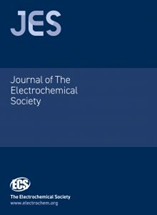 Spotlight on Maria Kelly, Rachel A. Wnuk, Recep Kaş, Glenn Teeter, Melissa E. Kreider, and Wilson A. Smith for their Editor’s Choice article published in the Journal of The Electrochemical Society (JES) titled “Rapid Deactivation Convolutes Electrochemical CO2 Reduction Selectivity Measurements on Gold Rotating Ring Disk Electrodes.” The corresponding author of this work is Maria Kelly, an ECS Student member at University of Colorado Boulder, affiliated with the ECS Physical and Analytical Electrochemistry Division. Maria works in the lab of Wilson T. Smith, Principal Investigator of UC Boulder’s Electrobuffs Team.
Spotlight on Maria Kelly, Rachel A. Wnuk, Recep Kaş, Glenn Teeter, Melissa E. Kreider, and Wilson A. Smith for their Editor’s Choice article published in the Journal of The Electrochemical Society (JES) titled “Rapid Deactivation Convolutes Electrochemical CO2 Reduction Selectivity Measurements on Gold Rotating Ring Disk Electrodes.” The corresponding author of this work is Maria Kelly, an ECS Student member at University of Colorado Boulder, affiliated with the ECS Physical and Analytical Electrochemistry Division. Maria works in the lab of Wilson T. Smith, Principal Investigator of UC Boulder’s Electrobuffs Team.
By comparing protocols with different electrochemical methods, reagent purities, and glassware cleaning procedures, the open access article’s authors identify causes of variability in rotating ring disk electrodes (RRDE) selectivity measurements. As voltammetric measurements of electrochemical CO2 reduction reaction (CO2RR) selectivity on RRDE are a rapid and sensitive method for quantifying an electrocatalyst’s selectivity (i.e., faradaic efficiency [FE]), this method has been applied to polycrystalline Au electrocatalysts wherein an Au disk electrode catalyzes both the CO2RR and hydrogen evolution reaction while the concentric Au ring electrode selectively senses CO by oxidizing CO back to CO2. While such measurements enabled fundamental mechanistic studies, they suffered from poor inter-laboratory reproducibility. Read more!

